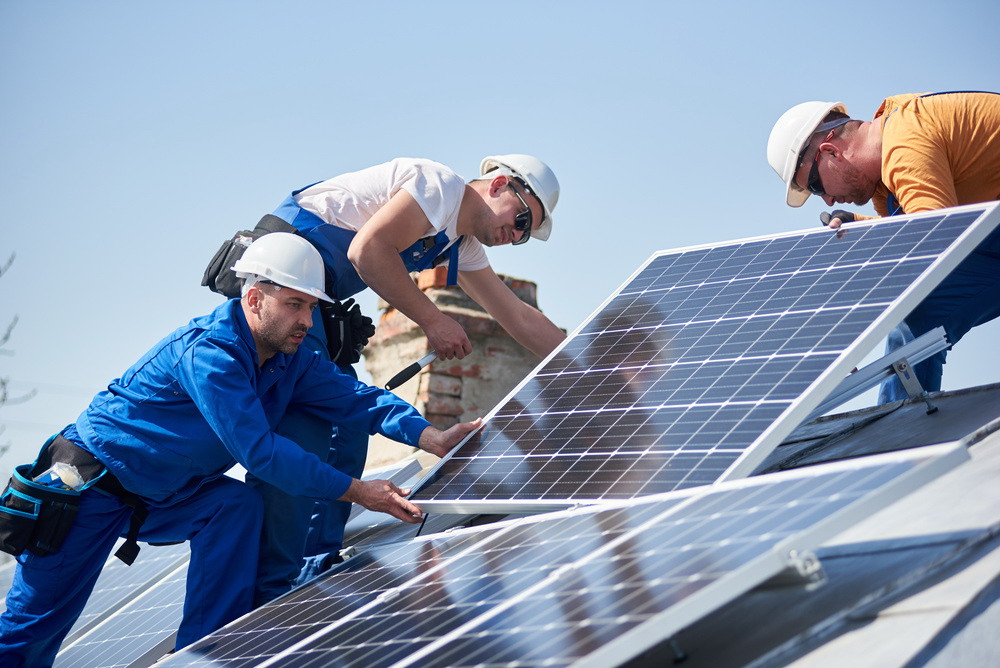The transition to renewable energy sources is becoming increasingly popular. Moreover, according to those at Vivint Solar, solar panels are at the forefront of this movement. But before you consider installing a solar energy system, you need to make sure you know what to expect.
Assessing Your Home’s Solar Potential
First, you need to determine whether your home is suitable for solar panels. You’ll want to ensure your home gets ample sunlight throughout the year. Southern-facing rooftops generally receive the most sun in the Northern Hemisphere, making these ideal for solar panel installations.
Your roof should be strong, durable, and structurally sound to support the weight of solar panels. So, the ideal orientation for solar panels in the Northern Hemisphere is south facing, maximizing sunlight exposure.
It is important to have enough space on your roof or property to accommodate the required number of solar panels for your energy needs.
Although solar panels function well in various climates, extreme weather conditions, like heavy snowfall or hail, can impact their efficiency. Therefore, it’s important to assess your local climate before making a decision.
Solar Panel Installation Costs and Financing
Understanding the costs involved and financing options available is crucial before installing solar panels. Although the initial cost of solar panel installation can be high, the long-term savings on energy bills often outweigh the investment.
Governments often provide incentives such as tax credits or rebates to encourage solar panel adoption. Research the incentives available in your area to lower the overall cost.
Solar loans and leases offer alternative financing options, allowing you to install solar panels with little or no upfront costs. Be sure to compare loan terms and lease agreements to find the best fit for your financial situation.
Choosing a Solar Panel Installer
Selecting the right installer is a crucial step in the solar panel installation process. Start by investigating local solar companies and reading customer reviews to gauge their reputation and reliability.
Choose a company with a proven track record and expertise in solar panel installations. Ask for references and case studies to help you make an informed decision. Get quotes from multiple solar installers, comparing not only the price but also the scope of work, equipment, and warranties.
Ensure your chosen installer has the necessary certifications and provides solid warranties for both their workmanship and the solar equipment.
Solar Panel Maintenance and Monitoring
Once your solar panels are installed, proper maintenance and monitoring are essential to ensure their longevity and efficiency. Keep your solar panels clean and free of debris to maintain their performance. Schedule regular inspections to identify and address any issues before they escalate.
Monitor your solar panels’ performance using a monitoring system provided by the installer or a third-party solution. This will help you detect any inefficiencies or problems that may arise.
Grid Connection and Net Metering
Connecting your solar panel system to the grid and understanding net metering policies can help you make the most of your investment. Your solar panel installer will handle the grid connection process, ensuring that your system is integrated safely and efficiently. Net metering allows you to sell excess energy back to the grid, offsetting your energy bills.
Conclusion
If you are considering going solar, there are a few things to consider before you get started. For example, you need to have your home assessed by a professional installer to see if it is suitable in terms of geographical location, roof space, and orientation. You should also do your research to see what the initial and ongoing costs will be and whether there are any initiatives or incentives that you can use to reduce this amount.
You may also like
-
Choosing the Best Pool Contractor in Indiana: Why Wetscapes Fiberglass Pools Stands Out
-
Top Civil Engineering Innovations Transforming Philippine Construction
-
Efficient Cleaning and Care Techniques for Different Surfaces in Your Home
-
Everything You Need to Know About Home Window Replacement and Custom-Designed Window Installation
-
Transform Your Garden with Ashdale Fencing

